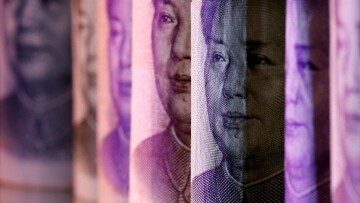
Oil has wiped out all gains accumulated so far in 2025 due to concerns over a potential trade war between the United States and China, which could affect global energy demand. West Texas Intermediate crude fell to $71 a barrel after China announced measures in response to tariffs imposed by Donald Trump, causing futures to drop below last year's closing levels for the first time this year.
China announced its decision to impose tariffs on U.S. products such as oil and liquefied natural gas in response to Washington's unilateral actions. Last year, the United States exported an average of 250,000 barrels per day of crude oil to China, a relatively low amount. China applied a 15% tax on coal and liquefied natural gas, and 10% on oil and agricultural machinery, alongside controls on tungsten exports, a metal used in the defense industry.
This trade confrontation marks a difference with the United States' relationships with its neighbors, Canada and Mexico, where Trump decided to postpone tariffs after agreeing on joint measures on migration and drug trafficking issues. The escalation of trade disputes between the two largest economies in the world could have negative global implications.
Oil prices have fluctuated today, with West Texas Intermediate decreasing by 0.51% to $72.79 per barrel, while the Brent benchmark increased by 0.42% to $76.28 per barrel. Oil futures have experienced turbulent weeks, initially rising due to the cold winter and U.S. sanctions on Russian energy exports, and then descending due to Trump’s threats to impose broad tariffs that could harm global growth.
"It remains to be seen how long these tariffs could last. In their current form, although they are coercive, they are flexible," expressed Tamas Varga, an analyst at PVM brokerage. With information from Valeria López.














